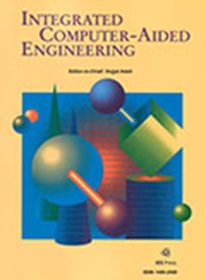Near real-time management of appliances, distributed generation and electric vehicles for demand response participation
IF 5.3
2区 计算机科学
Q1 COMPUTER SCIENCE, ARTIFICIAL INTELLIGENCE
引用次数: 5
Abstract
Consumer-centric energy management approaches are emerging as a major solution for future power systems. In this context, intelligent home management systems should manage different kinds of devices existing in the houses assuring convenient comfort levels and understanding the users’ behaviour. At the same time, the home management systems should be able to interact with other actors such as energy communities, aggregators, and system operators. The main contribution of this work is a new methodology allowing intelligent management, in near real-time (1 minute), of different types of energy resources existing in a smart home. The energy resources include appliances and other loads, micro-generation, and electric vehicles. The proposed system includes a permanent evaluation of the operation state of each energy resource considering their functional model and the behaviour and comfort level defined by the users. Participation in demand response programs reducing the power consumption limits is also considered showing the advantage of the proposed approach. The case study contains two scenarios considering a demand response program of power limitation with 120 minutes duration. To guarantee participation in these demand response events, the system should evaluate the priority of each device according to its model. A domestic consumer with 45 energy resources (appliances, generation, and electric vehicles) is used for demonstration purposes.近实时管理电器,分布式发电和电动汽车的需求响应参与
以消费者为中心的能源管理方法正在成为未来电力系统的主要解决方案。在这种情况下,智能家居管理系统应该管理房屋中存在的各种设备,确保方便的舒适度并了解用户的行为。同时,家庭管理系统应该能够与其他参与者(如能源社区、聚合器和系统运营商)进行交互。这项工作的主要贡献是一种新的方法,允许智能管理,在近实时(1分钟),不同类型的能源存在于智能家居。能源资源包括电器和其他负载、微型发电和电动汽车。提出的系统包括考虑其功能模型和用户定义的行为和舒适度的每种能源的运行状态的永久评估。参与需求响应计划降低电力消耗限制也被认为显示了所提出方法的优势。案例研究包含两个场景,考虑120分钟持续时间的限电需求响应方案。为了保证参与这些需求响应事件,系统应根据其模型评估每个设备的优先级。一个拥有45种能源资源(家电、发电和电动汽车)的家庭消费者被用于演示目的。
本文章由计算机程序翻译,如有差异,请以英文原文为准。
求助全文
约1分钟内获得全文
求助全文
来源期刊

Integrated Computer-Aided Engineering
工程技术-工程:综合
CiteScore
9.90
自引率
21.50%
发文量
21
审稿时长
>12 weeks
期刊介绍:
Integrated Computer-Aided Engineering (ICAE) was founded in 1993. "Based on the premise that interdisciplinary thinking and synergistic collaboration of disciplines can solve complex problems, open new frontiers, and lead to true innovations and breakthroughs, the cornerstone of industrial competitiveness and advancement of the society" as noted in the inaugural issue of the journal.
The focus of ICAE is the integration of leading edge and emerging computer and information technologies for innovative solution of engineering problems. The journal fosters interdisciplinary research and presents a unique forum for innovative computer-aided engineering. It also publishes novel industrial applications of CAE, thus helping to bring new computational paradigms from research labs and classrooms to reality. Areas covered by the journal include (but are not limited to) artificial intelligence, advanced signal processing, biologically inspired computing, cognitive modeling, concurrent engineering, database management, distributed computing, evolutionary computing, fuzzy logic, genetic algorithms, geometric modeling, intelligent and adaptive systems, internet-based technologies, knowledge discovery and engineering, machine learning, mechatronics, mobile computing, multimedia technologies, networking, neural network computing, object-oriented systems, optimization and search, parallel processing, robotics virtual reality, and visualization techniques.
 求助内容:
求助内容: 应助结果提醒方式:
应助结果提醒方式:


